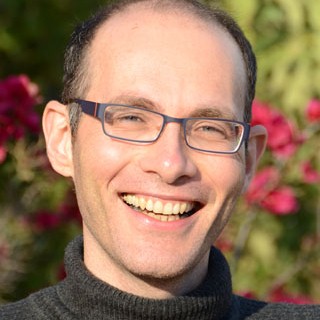
Will computers be able to recognize lies during negotiations over agreements in business and diplomacy? Or to guide students using virtual laboratory software for teaching chemistry and physics in a way that guides and adapts to their individual needs?
These are a few of the questions comprising the research of Dr. Ya'akov (Kobi) Gal from BGU. Dr. Gal is about to receive the 2014 Krill Prize for academic excellence among young Israeli scientists, which is granted annually by the Wolf foundation. His research focuses on designing "intelligent agents" – algorithms that run on computers, robots and smart phones – and interact with other people as well as computers. The goal of his research is to enable computers to understand how humans make decisions and to use this information to foster cooperation with their human counterparts in domains such as strategic negotiation and education.
The member of the Department of Information Systems Engineering's thesis is that the future role for intelligent agents is not to replace human professionals, a fear that is still conveyed by many today, but rather "share the problem solving" with the humans in the loop in a way that best utilizes people's abilities. To this end, Gal synthesizes techniques and approaches from computer science, economics and psychology in novel ways.
For instance, in one study Gal designed an intelligent agent for learning to negotiate with people from different cultures. The agent, designed in collaboration with Bar-Ilan University and the University of Maryland, is based on a mathematical model about people's reliability and fairness during the negotiation process. For example, the agent learned that in some Arab countries, reaching agreements can take significantly longer than in Israel and the U.S., but once an agreement is reached, people are more likely to stick to it.
Another project concerns the intelligent analysis of students' use of "virtual laboratories" – open-ended and flexible software for science education, supporting students' use of exploratory activities and trial-and-error which characterize scientists' work in real laboratories. Such software programs are becoming prevalent, especially in developing countries where access to teachers is limited. Although they provide a rich educational environment for students, they are notoriously difficult to analyze for teachers and educational researchers. Gal's algorithms infer students' activities from their traces with the software using AI techniques, and visualize these activities in a way that supports their understanding of the individual strengths and weaknesses of the students. Watch a short movie showcasing this algorithm.
A third project, in collaboration with Harvard University and Microsoft Research, includes the design of intelligent agents that learn to manage interruptions when interacting with human users. Interruptions are an endemic aspect of human communications (especially in Israel) in order to provide or request useful information. However, there is much research demonstrating that such interruptions are costly – they decrease our efficiency, irritate and carry a cognitive load. An example is the dreaded “Clippy” application that some of us may remember from earlier Windows versions (“Are you trying to write a letter?”). In contrast to Clippy, Dr. Gal's agent predicts people's responses to machine-generated interruptions in different types of settings, and the computer agent uses this information to determine how to interrupt the user in a way that minimizes intrusion while providing necessary information.
Gal is also affiliated with the School of Engineering and Applied Sciences at Harvard University.
